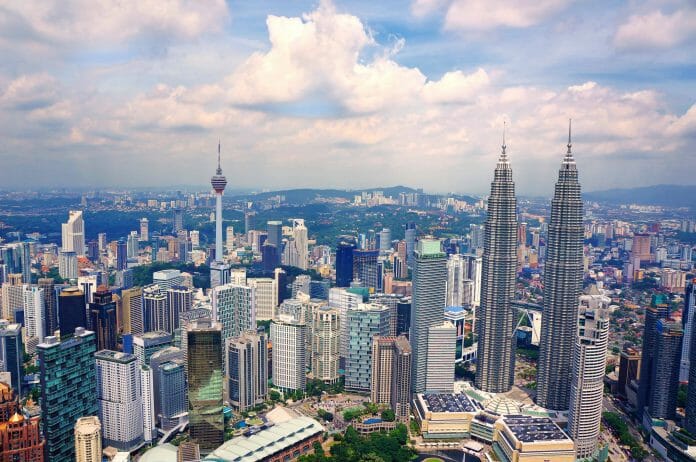In a recent report by theedgemarkets.com, the Federal Territories (FT) Ministry is looking to implement a large-scale precision farming project commercially to provide employment opportunities to the homeless and help them generate their own income.
FT Minister, Annuar Musa said that the initiative will help the homeless to generate income on a daily basis and will motivate the group to continue to improve their quality of life.
According to the ministry, there are currently 21 urban farming locations in Kuala Lumpur, with another 52 locations with a total area of 27 hectares for the purpose.
Based on the study “Urban Agriculture and Community Food Security in the United States: Farming from the City Centre to the Urban Fringe” by Community Food Security Coalition’s North American Urban Agriculture Committee, urban farming can be defined as the practice of cultivating, processing, and distributing food in or around urban areas.
It has become a means to improve the accessibility of fresh and locally grown food for economically disadvantaged communities and educate urban residents on how food can grow in an urban and land-scarce setting through educational tours and workshops.
EMIR Research’s Research Analyst, Amanda Yeo told BusinessToday that there are still many potential sites that could be transformed into urban farms. Sunway FutureX Farm, Kebun-Kebun Bangsar (KKB) and Urban Hijau, for instance, are good urban farming initiatives in the city centre of Kuala Lumpur.
Several places that are ideal to be urban farms are the People’s Housing Project (PPR) flats, universities and colleges like Universiti Malaya (UM), and residential areas such as Shah Alam, Bandar Sunway and Subang Jaya, she says.
Additionally, there are underutilised retail and office space in which, according to the National Property Information Centre (NAPIC), the occupancy rate for shopping malls in Selangor and Kuala Lumpur are 80 percent and 82 percent, respectively.
The Valuation and Property Services Department (JPPH) has also revealed a lower occupancy rate at Malaysia’s privately-owned office buildings compared to the pre-pandemic era.
Selangor recorded 67.5 percent whereas the city centre of Kuala Lumpur recorded 77.8 percent.
“Precision farming is a farming management concept based on observing, measuring, and responding to inter and intra-field variability in crops. It uses information technology (IT) to ensure that crops and soil receive exactly what they need for optimum health and productivity.
“Even if it is seasonal work, large-scale precision farming offers them valuable skills and education in addition to a steady source of income,” Amanda commented on what is precision farming.
Recently the Malaysian Digital Economy Corporation (MDEC) successfully launched its Digital Agritech initiative, in collaboration with the Kuala Langat Area Farmers’ Organisation (PPK Kuala Langat) and Bank Pembangunan Malaysia to catalyse and drive the modernisation of the agricultural sector in Malaysia.
The chili and rock melon farms in PPK Kuala Langat have been fitted with 4IR technologies such as digital sensors, remote monitoring and management through automation which translates into consistent precision farming with great yields and compelling financial returns.
“The combined precise automated fertigation and fertiliser application was reported to reduce the required manpower to only two permanent staff for a two-acre plot and would benefit from higher economies of scale. For example, a 10-acre plot would need between three to four people.
“Farmers could use cover crops to protect the soil during off-seasons and make extra revenue from the sales of these crops. This not only boosts yield, but also boosts profit margins further when taking the crops to the market,” Amanda said.
Additionally, the food produced also can be sold directly at farmer’s markets, restaurants or grocery stores at a cheaper price and can be given to a local soup kitchen or church where low-income individuals need food the most.
Head of Science and Technology at EMIR Research, Ameen Kamal in his previous opinion piece for BusinessToday “Time to Modernise the Agricultural Sector for Food Security” highlighted that the “Big Data” generated from the sensors (Internet-of-things or IoT application in agriculture) can perhaps be combined with meteorological data.
Whereby the information could help in not only precision farming, but also predictive management that could help better manage inventories and supply chains.
That is where mobile apps, smart sensors, drones, and cloud computing can make precision farming possible for farming cooperatives and even small family farms.
“Sooner or later, innovative fintech and trading platform such as blockchain-based peer-to-peer (p2p) market platform may be considered to support small farmers by minimizing the role of the middleman and ensure the best prices for the consumers, and better margins for the farmers,” Amanda concluded.









